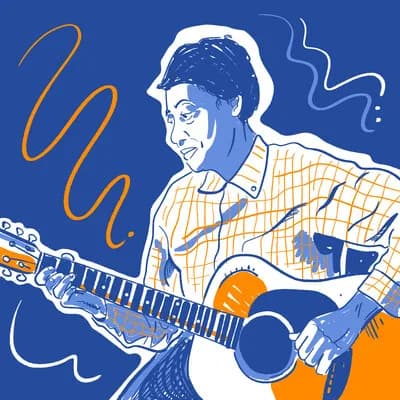
Elizabeth Cotten
5 January, 1893 – 29 June, 1987
When she was just a child, Elizabeth Cotten penned "Freight Train", with prescient lyrics, foreshadowing the wisdom beyond her years. After a chance encounter with the Seeger family decades later, her first recordings sprouted to life when she was 65 years of age.
MuseScore tabs
No data found